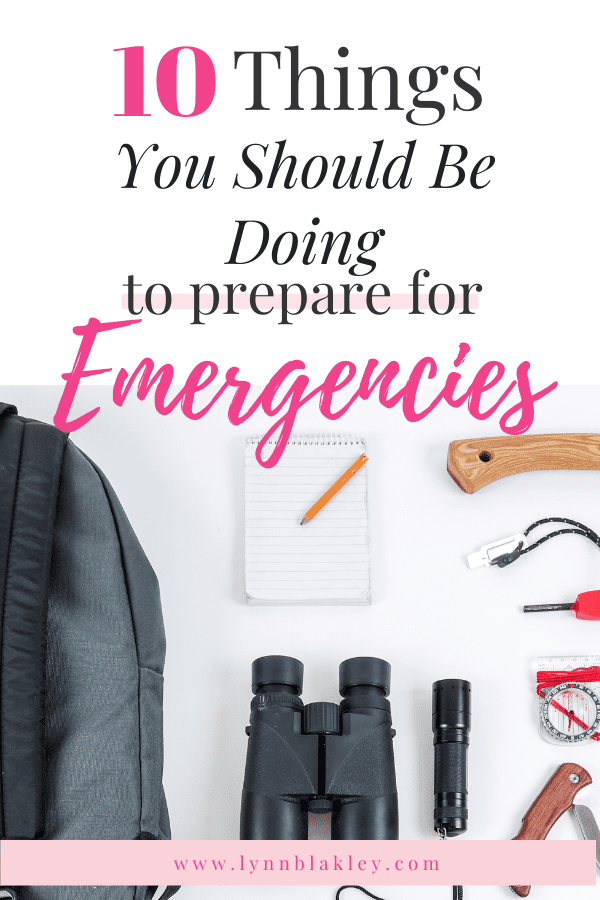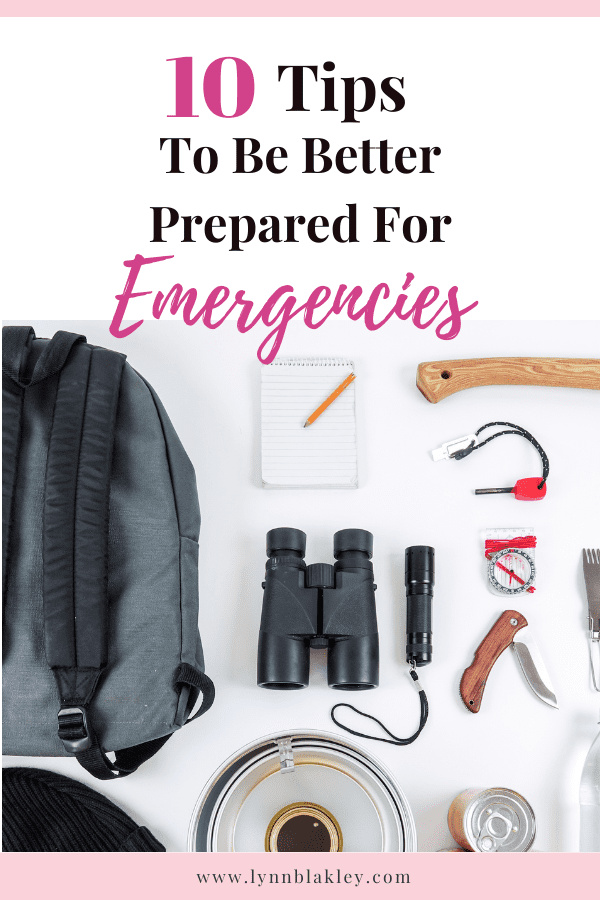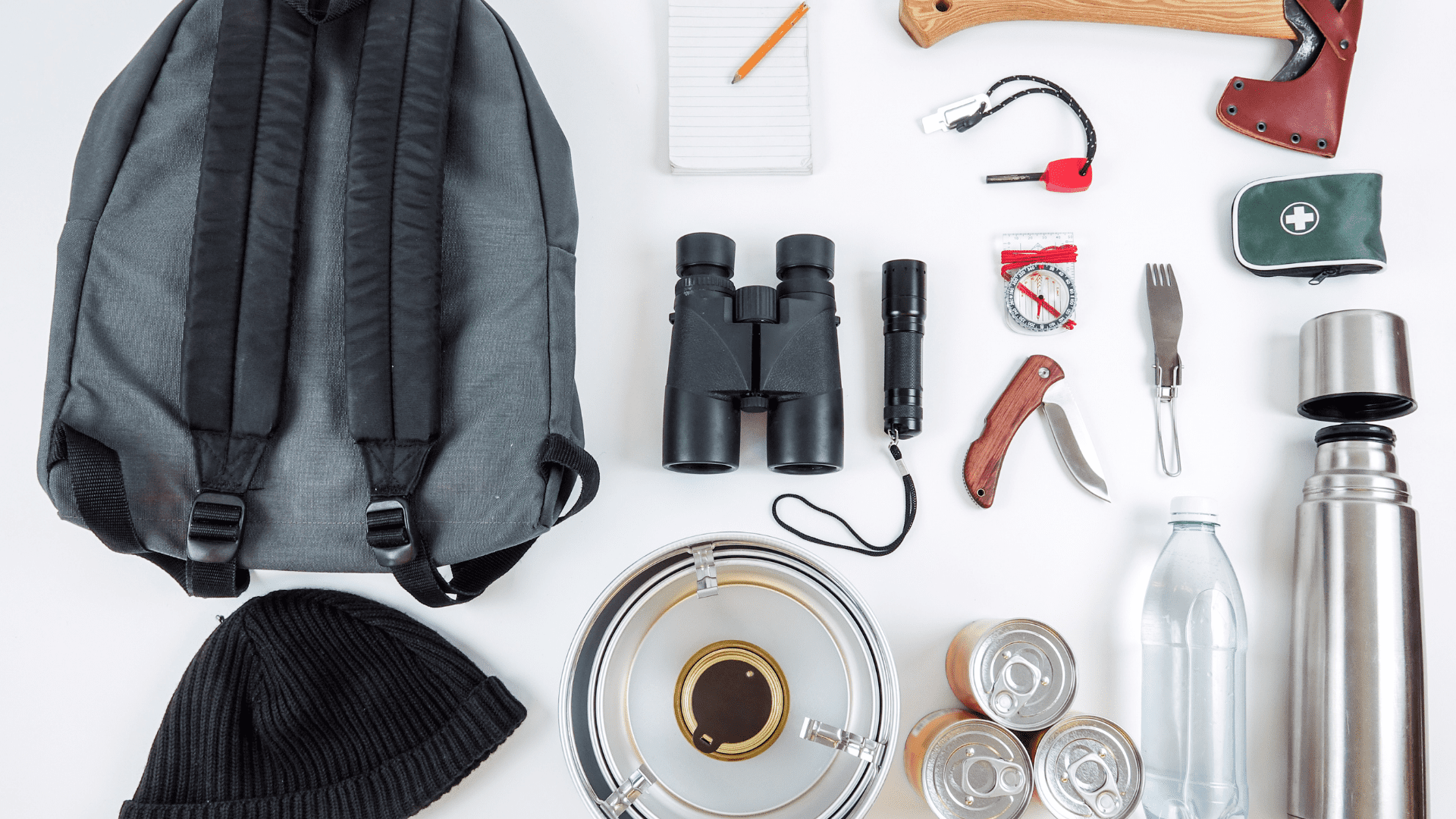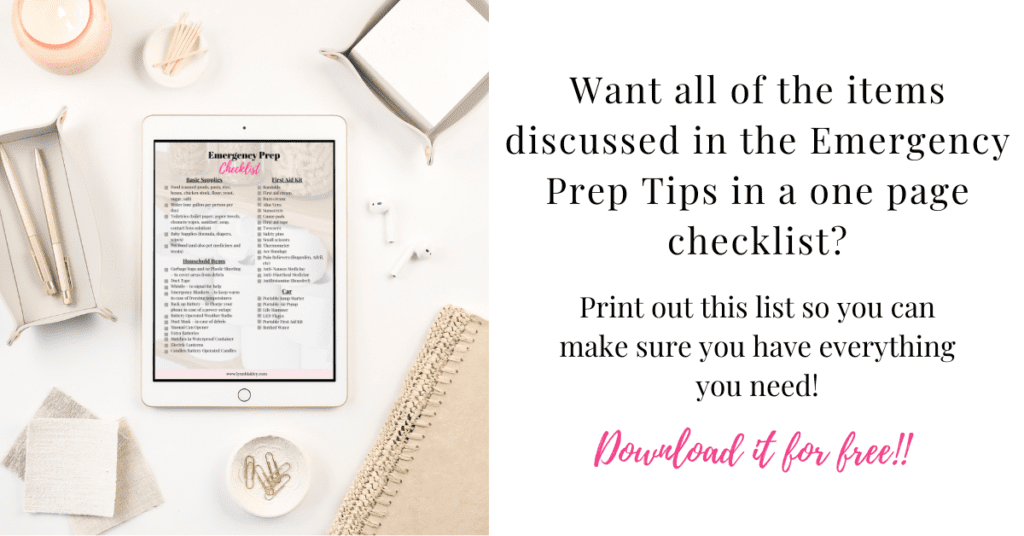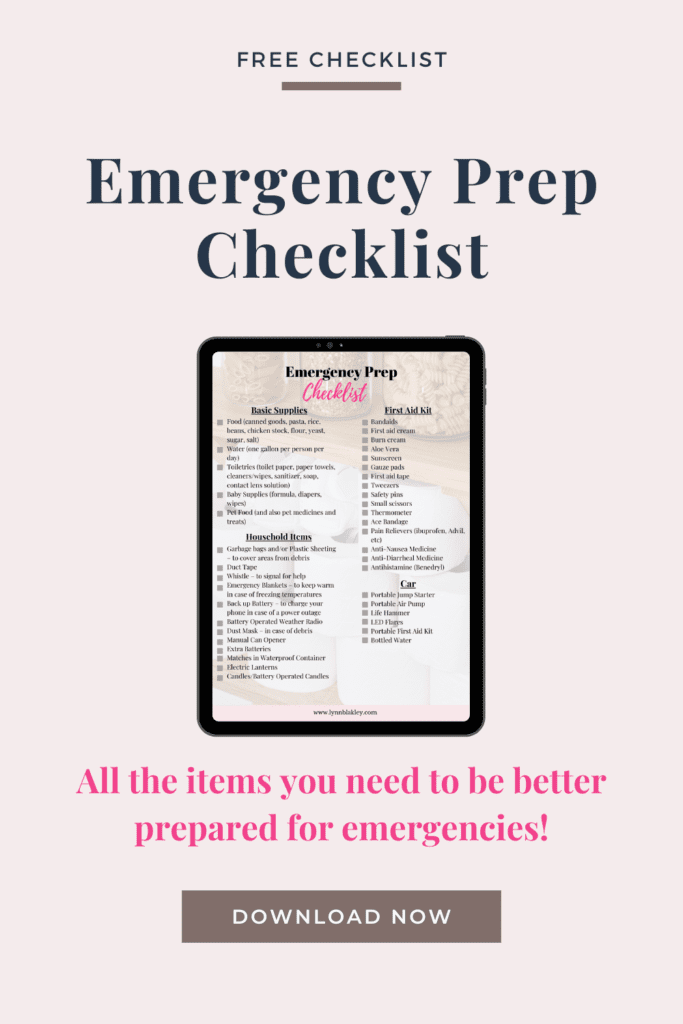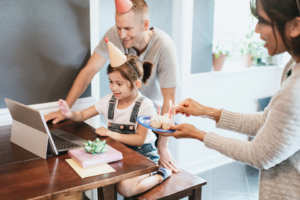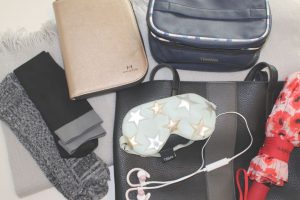Most of us are so busy on a daily basis to even think about preparing for emergencies. Or it may seem like disasters are only something that happen in big blockbuster movies. But if it’s one thing that a pandemic and back to back natural disasters have taught me, it’s that you need to prepare for emergencies and it should be done sooner rather than later!
Keep your pantry stocked
Last year, right before everything shut down in the US, I was watching the news in Italy. They had already been on lockdown for 4 weeks and their basic grocery supplies were running low because there were hardly any trucks making deliveries.
I told my husband that we needed to prepare for a similar situation. We started stocking up on canned vegetables, pasta, rice, and a few other items that we could keep in our pantry. We didn’t go crazy and buy 100 cans, but we did buy enough food to last us for 3 weeks just in case.
In mid-March 2020, we were attending a wedding when everything shut down. We flew home and by the time we got to the grocery store, there was virtually nothing left. The aisles were completely bare! Luckily, we had our stash of food in the pantry but we really had no meat. The only thing we were able to find that week was a small turkey breast and hot dogs. So we bought what we could.
But even though we had mildly prepared for the shortages, we knew there were areas that we needed to improve upon and one of them was meat. So we started stocking our extra freezer as soon as meat became available. And now at all times, we keep enough food and supplies to last us for at least 3 weeks.
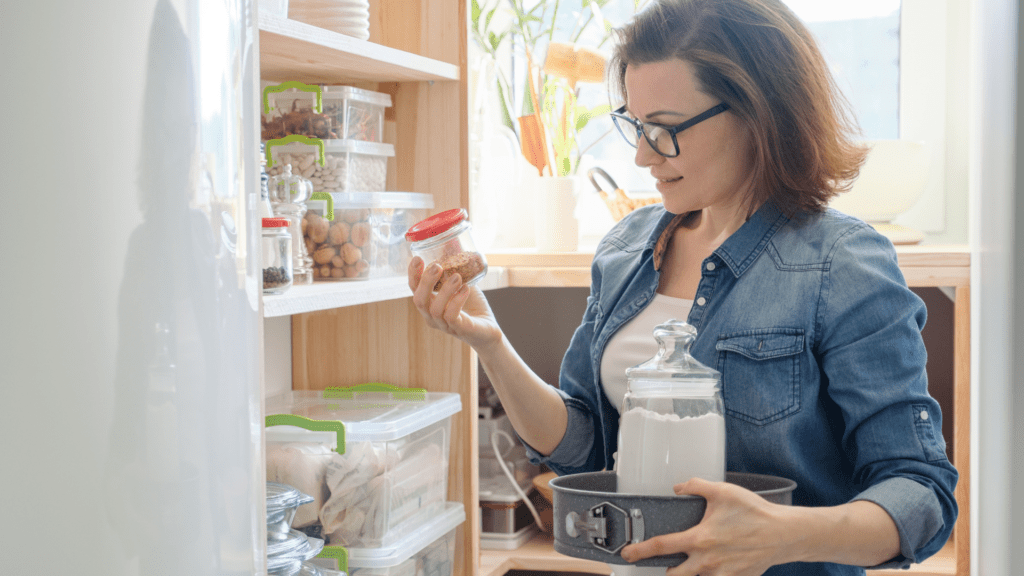
In February 2021, Texas was hit with a hard freeze. Almost everyone lost power including the grocery stores. Grocery stores had to throw away a lot of their food due to the lost power. On top of that, trucks couldn’t travel on the highways due to the ice and snow, so stores were not able to get re-stocked. Many people were left buying and eating whatever food they could find.
It was just another reminder of why we should always keep supplies on hand.
The government suggests to keep enough food and water on hand to last a few days, but most people still don’t stock up. And after the great toilet paper crisis of 2020 (combined with the bare shelves), I think this has become even more important when it comes to prepping for emergencies.
So just what should you stock up on? Anything that you or anyone in your household might need during a 2-3 week period. (I know the government recommends a few days, but after last year, I think it’s best to keep more on hand in case of illness) This includes:
- Food (canned goods, pasta, rice, beans, chicken stock, flour, yeast, sugar, salt)
- Water (one gallon per person per day)
- Toiletries (toilet paper, paper towels, cleaners/wipes, sanitizer, soap, contact lens solution)
- Baby Supplies (formula, diapers, wipes)
- Pet Food (and also pet medicines and treats)
Other emergency items you should include are:
- Garbage bags and/or Plastic Sheeting – to cover areas from debris
- Duct Tape
- Whistle – to signal for help
- Emergency Blankets – to keep warm in case of freezing temperatures
- Back up Battery – to charge your phone in case of a power outage
- Battery Operated Weather Radio
- Dust Mask – in case of debris
- Manual Can Opener
- Extra Batteries
- Matches in Waterproof Container
(For a complete list of resources, go to ready.gov. )
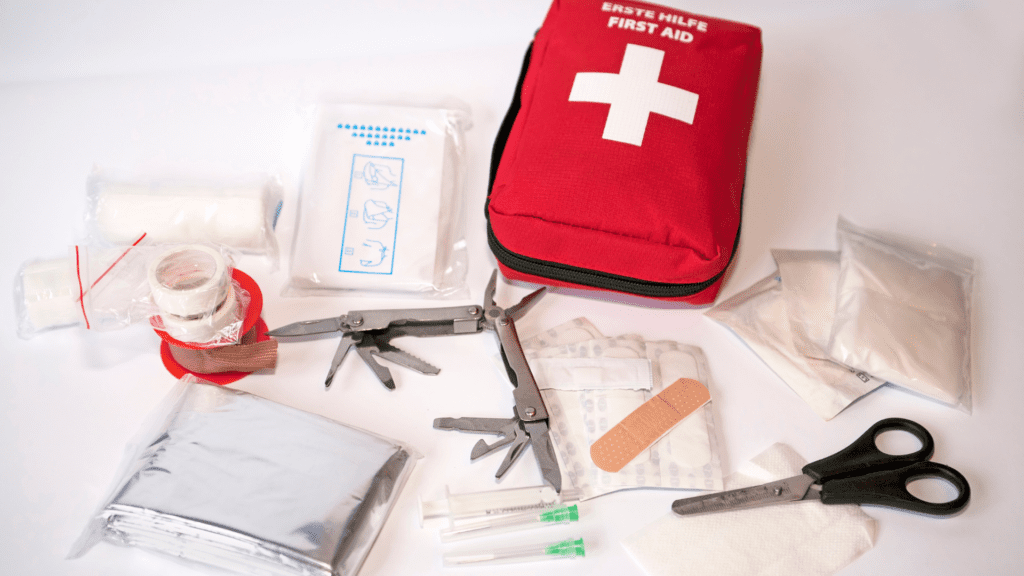
Keep a first aid kit in the home
Every household should also have a first aid kit on hand. Most of the time it will just be for day to day injuries (like cuts or scrapes) but you never know when you might need it for something more. You can make your own as it doesn’t have to be fancy. But each kit should cover basic emergency needs. A good kit should include:
- Bandaids
- First aid cream
- Burn cream
- Aloe Vera
- Sunscreen
- Gauze pads
- First aid tape
- Tweezers
- Safety pins
- Small scissors
- Thermometer
- Ace Bandage
- Pain Relievers (ibuprofen, Advil, etc)
- Anti-Nausea Medicine
- Anti-Diarrheal Medicine
- Antihistamine (Benedryl)
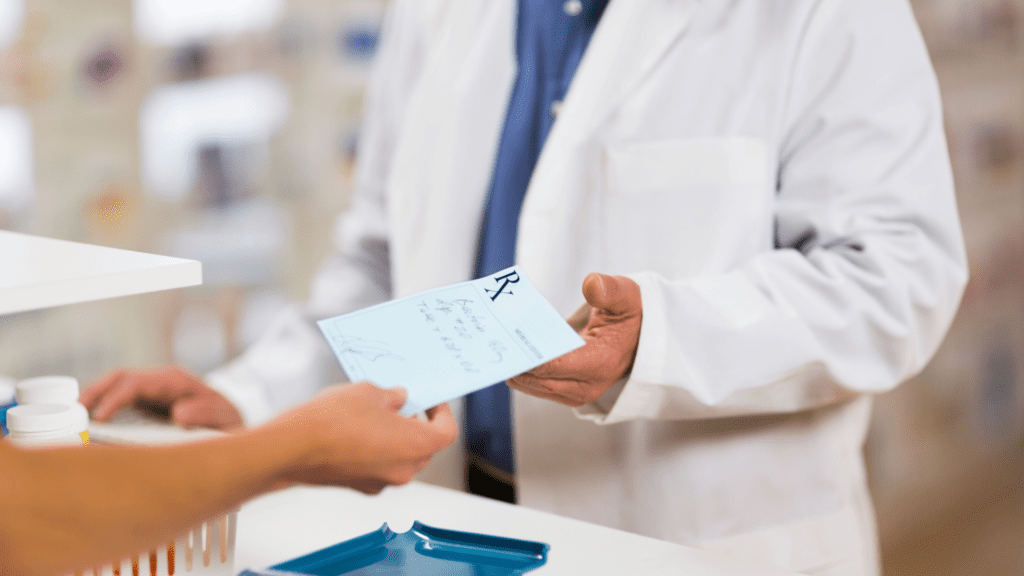
Refill your prescriptions early
How many times have you gone to take your prescription and realized you are down to your last pill? Then you have to remember to call it in to the pharmacy that day, and stop by to pick it up so that you don’t miss a day.
What if the pharmacy had to order the medicine? What if you are out of refills and you have to wait for the doctor to approve the refill and they’re out of the office. Have you ever accidentally dropped your last pill down the sink? Have you ever been packing for vacation and realized that you won’t have enough of your prescription to make it through the trip?
Most insurance companies will allow you to fill your prescriptions up to a week before they’re “due”. If you fill them a little early each time, within a couple of months, you will have a little extra on hand. This can be extremely important if any of the situations above have happened to you. I am by no means talking about stockpiling your own little pharmacy, but having an extra 2 weeks of your prescriptions on hand can be a lifesaver!
Keep your documents safe
How many times have you needed to bring your social security card because you’re renewing your license or starting a new job and you have absolutely no clue where it’s at?
Gather all of your important documents together in one place. This includes birth certificates, social security cards, marriage/divorce records, passports, vaccine cards, and anything else that shouldn’t go in your wallet but also shouldn’t be lost. If a birth certificate or social security card is missing, make sure to order a replacement.
Once you have them all together, consider investing in either a fireproof bag or a fireproof safe. Many times, these bags and safes are also waterproof. This will ensure that all of your important documents are protected in case of a natural disaster.
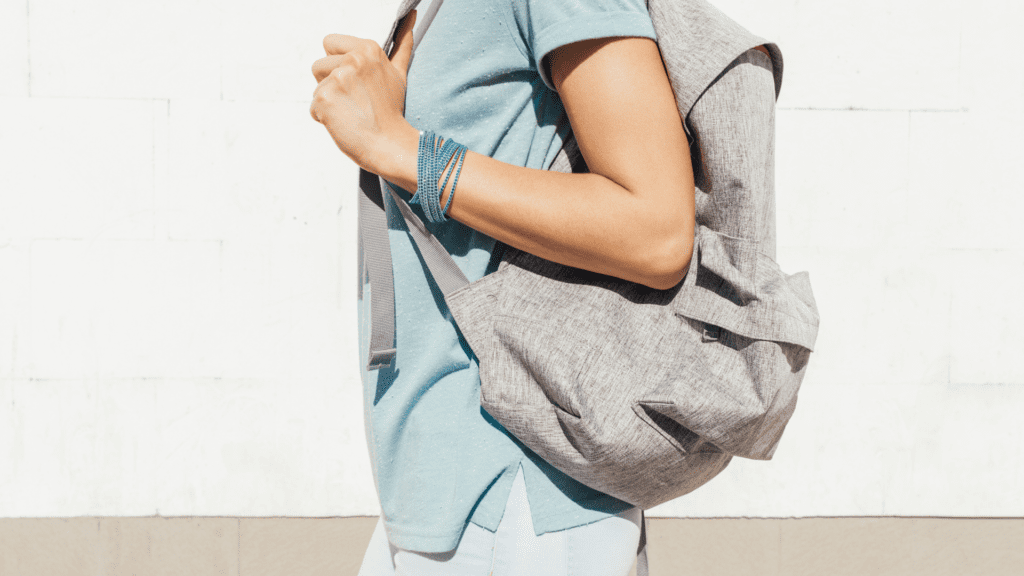
Keep a “Go” bag ready
Every time the tornado sirens go off, my husband laughs at my actions. I immediately go and start grabbing pillows and comforters and dragging them to the bathroom. I also go get my shoes on and then start grabbing necessities and throwing them into my bag. And by necessities, I mean wallets, prescriptions, documents, keys, and the leashes and a few items for the dogs. He asks “why do you need all of that?” And I tell him “why wouldn’t we need all of this?”
If the worst were to happen, we’d need money so the wallets are a necessity. We would also need our prescriptions and any important documents needed to file a claim.
If you have “extra” prescriptions, you can keep them in the bag along with a few snacks, flashlights, and your first aid kit. This bag should always be kept near your emergency shelter or by a door should you need to evacuate. These bags are also called “bug out” bags. You should be able to grab what you need in under a minute in case of a true emergency.
Make sure you have light (and heat)
You should always have your own source of light on hand. This should include flashlights, electric lanterns, extra batteries, and battery-operated candles. You can also use regular candles.
If you can, invest in a tiny propane camping stove. If power is out for lengthy periods of time, you will still be able to cook a hot meal over the camping stove. Make sure that you store the propane safely and away from anything else that might be flammable.
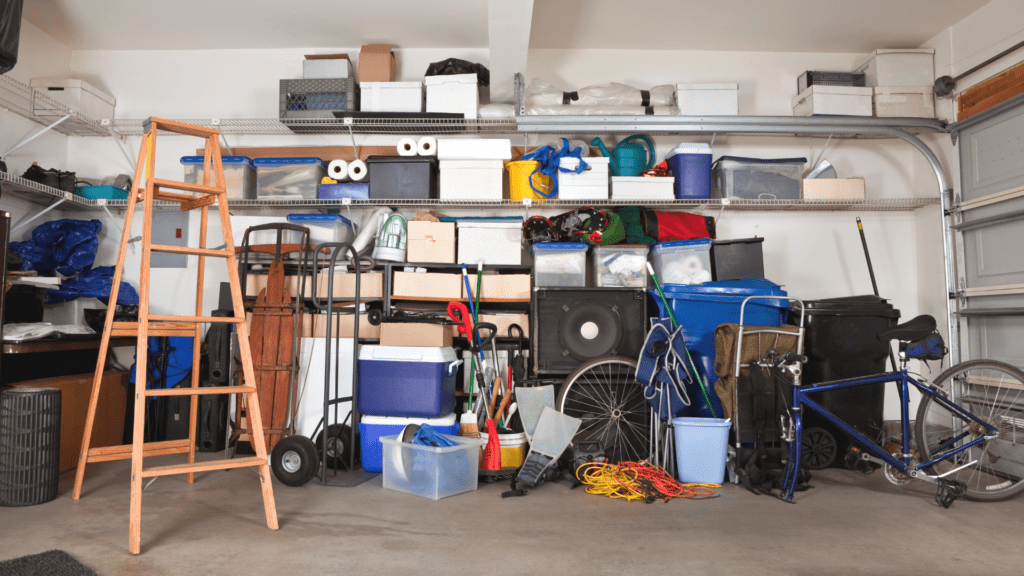
Clean out the garage
The garage tends to be a catch all space for things. It can be a space for tools, lawn care equipment, holiday decorations, and pretty much anything else in the house that doesn’t have a home. But the problem is that it tends to get so cluttered that it doesn’t ever serve its true purpose which is to protect your car.
Before moving to Texas, I had never experienced hail. And my first experience was an eye opener! When they say that everything is bigger in Texas, they mean it! I had no idea that hail could be so large. While pea size hail might not damage your car, golf ball size and softball size definitely can! And while you can file a claim with the insurance company and get it fixed, it’s still a hassle to do. Especially if all the repair places are backed up!
It’s a lot less stressful just cleaning up the garage and making sure your car is safe and sound before the storm starts rolling in.
If your garage is messy, the first step would be to actually go through it and throw away things you no longer need. The second step is to invest in some storage options. Shelves are one good option, and on the wall storage like the Elfa Utility Track or Home Depot Monkey Bars are good options for ladders, sports equipment, and tools. And if you’re super handy when it comes to building things, you can even build a “loft” area at the top of your garage for storage.
Keep an emergency car kit
Most cars come with a spare tire and a tiny kit to help you change it, but they don’t typically come with anything to cover any other emergencies.
Have you ever been stuck in traffic for over 2 hours due to an accident on the road that couldn’t be cleared? If you have, then you know just how important it can be to have some extra water and possibly snacks in your car.
You should also have a first aid kit in your car. It should cover the basics, just as your one for your home does.
Other Items you should invest in:
A Portable Jump Starter – These will hold enough charge to start your car so that you can get it to the nearest shop. Sometimes you get lucky and you find someone with jumper cables and sometimes you get stuck.
Portable Air Pump – Have you ever been on the road and your low tire pressure light comes on? No more driving around looking for a gas station that has an air machine to fill up your tires. You can fill up your own with a portable pump.
Roadside LED Flares – This little device can be turned on and placed behind your vehicle at night to alert drivers if you are pulled over on the side of the road.
Life Hammer Plus – This is actually two tools in one. Once side will cut your seatbelt in the event that it will not release. The other side can puncture glass so if you had to exit your vehicle through your window, you can do so.
Also, keep at least a quarter of a tank of gas in your car at all times. During natural disasters, gas stations often have trouble with getting deliveries, and you may find that the gas stations are sold out of gas. It’s important that you have enough gas in your car in case of emergencies.
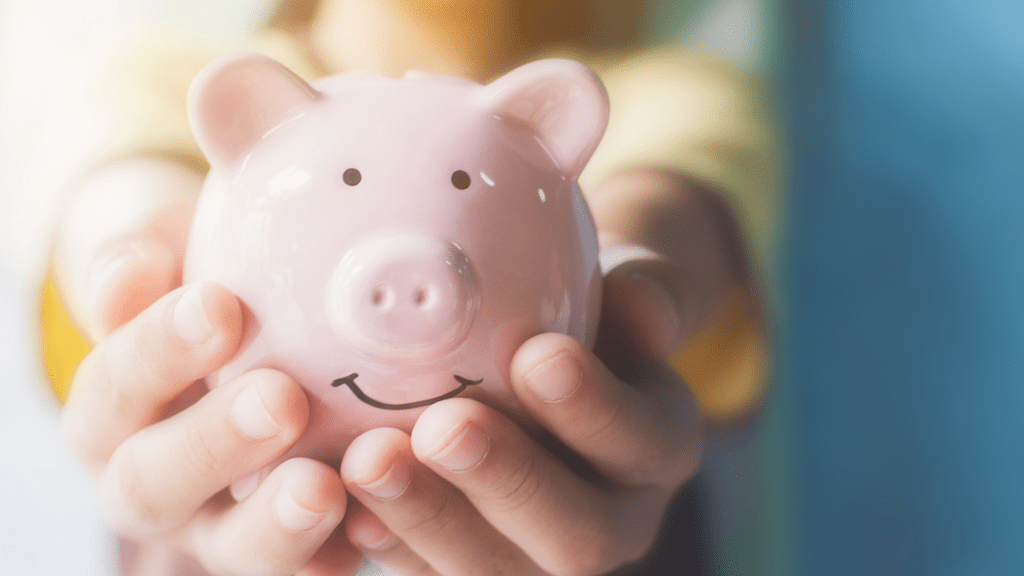
Have an emergency fund
I know it usually goes without saying, but you should have some additional money saved up. This doesn’t necessarily mean that it needs to be in a separate savings account, but you need to be able to have access to it, but not spend it, unless it’s an emergency. This doesn’t just come in handy for natural disaster emergencies, it is also a necessity in case of sudden unemployment.
While you can apply for unemployment if you are let go, it can take a while to get the funds paid out, so you will still need some money to hold you over.
Additionally, should always keep a little bit of cash in your wallet. Most people don’t readily carry cash in their wallets any more thanks to cards and smart watches, however, in the event that a store’s credit card machines are down, cash is the only option.
And don’t forget that even though your insurance will cover damage done by natural disasters, you may still owe your deductible. Make sure that you have enough to cover this cost.
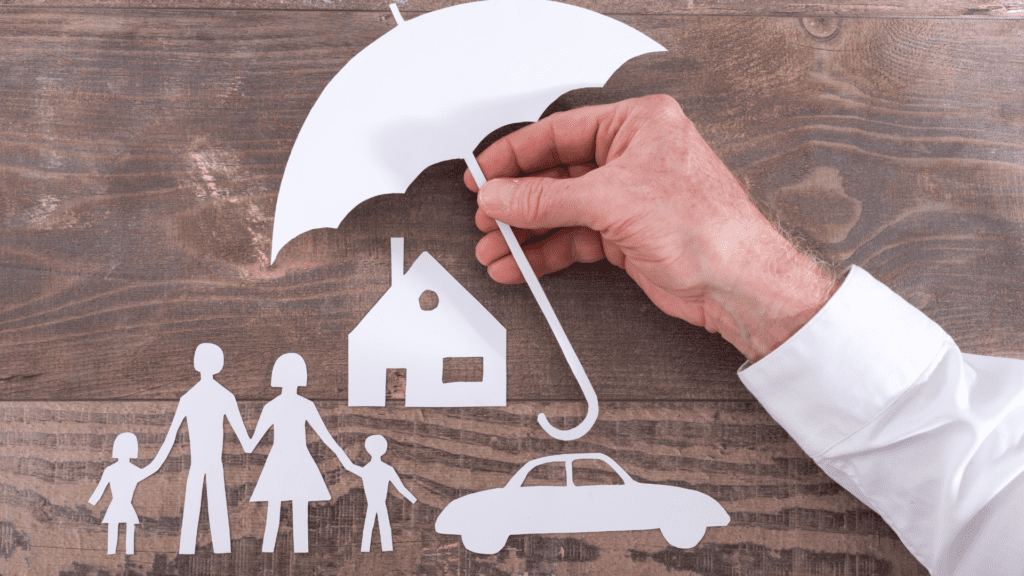
Invest in insurance
When money is tight, you start looking to cut out any unnecessary expenses you can find. But one expense that you shouldn’t cut out is insurance. Without insurance, you would be responsible for the cost of replacing everything in the event of a disaster. And that is going to be a much higher cost than the cost of having insurance. Even if you are renting a house or apartment, you should have renter’s insurance. Some places even require it now.
Sometimes it’s a lot of work to find something that’s affordable but it’s still worth the effort. Many years ago, when I was living in my first apartment, surviving on ramen noodles, the apartment building caught fire and almost all of my belongings were damaged. I thought renter’s insurance was an unnecessary expense but I also did not have the money to replace all of my things either. It was an expensive learning curve, but I found a policy I could afford soon after that.
Also make sure that you know what your policy covers and what it doesn’t. Depending on where you live, and what natural disasters may occur in that area, you may need to purchase supplemental insurance.
Most emergencies are still going to happen unexpectedly (that’s why they’re called emergencies), and they’re still going to be stressful, but by practicing these 10 tips, you will be better prepared if an emergency does occur and will have a little more peace of mind when it comes to handling them.
Do you need a handy little checklist with all of the items discussed in this post? Just click here and get your free checklist so you can be sure you have everything you need.
